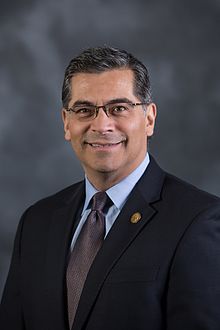Sacramento, CA…California Attorney General Xavier Becerra today joined a coalition of 11 Attorneys General in filing a lawsuit against the U.S. Environmental Protection Agency (EPA) over its illegal decision to allow companies to incorporate hydrofluorocarbons (HFCs) — a refrigerant that is a potent greenhouse gas — in their products.

On August 8, 2017, in Mexichem v. EPA, the District of Columbia Circuit Court of Appeals ruled that, while EPA could not compel existing users of HFCs to use another refrigerant, the agency could in fact require companies that had not yet started using HFCs to use a safer substance. However, by way of a recently released guidance document, EPA announced it has summarily stopped enforcing that requirement. It took this action without providing the required opportunity for the public to comment. This is a violation of the Administrative Procedure Act.
“I’ve said it before and I’ll say it again: EPA Administrator Scott Pruitt is not above the law. That is why we are taking him to court,” said Attorney General Becerra. “He should be working to protect our environment, but instead, he wants to unlawfully allow more companies to use these very potent climate pollutants. Whose interests is he looking out for? Climate change is the most important global environmental issue of our time. We do not have the luxury to sit on the sidelines and do nothing.”
The Natural Resources Defense Council has estimated the “lost” HFC emissions resulting from the guidance at 30 million metric tons of CO2 equivalent, assuming the guidance is effective May 2018 through December 2019. This is the equivalent of 6.4 million passenger vehicles driven for one year or the annual energy use for 3.2 million homes. In 2018, California adopted its own stringent rules to prohibit HFCs in certain refrigeration end-uses within the state. But its regulations do not cover all that the EPA rule covered, and HFCs emitted outside of California’s borders equally contribute to climate change impacts on California.
In 1990, Congress amended the Clean Air Act and established a federal system for replacing ozone-depleting substances to the maximum extent practicable with alternatives that “reduce overall risks to human health and the environment.” As part of that system, Congress tasked the EPA with designating each alternative as “safe” or “prohibited” and updating those designations as EPA gained new information and industry developed safer alternatives. EPA began identifying HFCs as safe substitutes in 1994. However, 21 years later in 2015, EPA prohibited their use after gaining greater scientific understanding of HFCs and their effects as potent greenhouse gases and identifying the availability of safer alternatives.
Attorney General Becerra joins the Attorneys General of New York, Delaware, Illinois, Massachusetts, Minnesota, New Jersey, Oregon, Vermont, Washington, and the District of Columbia in filing today’s lawsuit. The Pennsylvania Department of Environmental Protection also joined this lawsuit.
# # #


